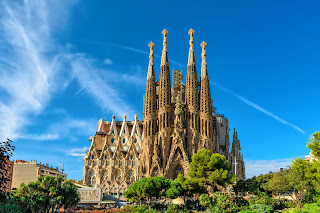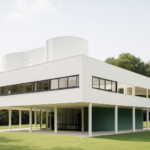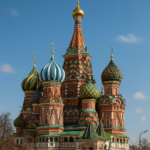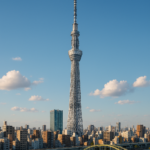
La Sagrada Familia is a large Roman Catholic church that has been under construction in Barcelona, Spain, since 1882. Antoni Gaudi, the church’s main architect, died in 1926, when La Sagrada Familia was only about 25% complete. La Sagrada Familia is thought to be designed in the Art Nouveau style, with influences from Spanish Late Gothic and Catalan Modernism. It was designed to be a cathedral-sized structure, but it was never intended to be one. Despite the fact that it has not yet been completed, La Familia Sagrada has been designated a UNESCO World Heritage Site, and Pope Benedict XVI designated it a minor basilica in 2010.
The foundation stone for La Sagrada Familia was laid in 1882.
The anticipated completion date for La Sagrada Familia is 2041.
The idea for La Sagrada Familia came from publisher Josep Bocabella, who was inspired by a visit to the Vatican.
Francisco de Paula del Villar created the original design for La Sagrada Familia, but he resigned in 1883. He was in charge of the apse crypt’s construction. He envisioned a church in the Gothic Revival style.
Antoni Gaudi took over as architect after the first designer resigned. He drastically altered the design and began work in 1883. He was not officially appointed Architect Director until 1884.
Donations have funded the construction of La Sagrada Familia.
Antoni Gaudi died in 1926, when the construction of La Sagrada Familia was estimated to be 15 to 25% complete. He is said to have said, “My client is not in a hurry,” referring to the lengthy construction timetable.
Domenec Sugranes I Gras took over after Antoni Gaudi died, but his work was interrupted by the Spanish Civil War in 1936.
After 1940, a number of architects, including Francesc Quintana, Isidre Puig Boada, Lluis Bonet I Gari, and Francesc Cardoner, were involved in the construction of La Sagrada Familia.
La Sagrada Familia is estimated to be 70% complete as of October 2015.
Tourists visiting La Sagrada Familia pay approximately 25 million euros in entrance fees each year. This is the construction budget for the year.
In 2010, an organ was installed in the unfinished La Sagrada Familia, allowing religious services to be held.
6500 people attended Pope Benedict XVI’s consecration in 2010. More than 50,000 people attended the mass outside the basilica and received communion from 100 bishops and 300 priests.
When finished, La Sagrada Familia will have three facades: the Nativity façade to the east, the Glory façade to the south, and the Passion façade to the west. The central nave is based on the design of a Latin cross.
When completed, the spire of La Sagrada Familia will stand 560 feet tall. The spire is the building’s tapering structure at the top.
Tourists can visit the Nave, the Crypt, the Museum, the Shop, and the Nativity and Passion towers.
La Sagrada Familia’s full name is Basilica I Temple Expiatori de la Sagrada Familia.









I just wanted to reach out and extend my deepest gratitude for the profound impact your blog has had on my personal and professional growth. Your thought-provoking and meticulously researched articles have broadened my horizons and challenged my perspectives. Your ability to distill complex concepts into accessible and engaging pieces is truly commendable. Thank you for sharing your knowledge and enriching my life.